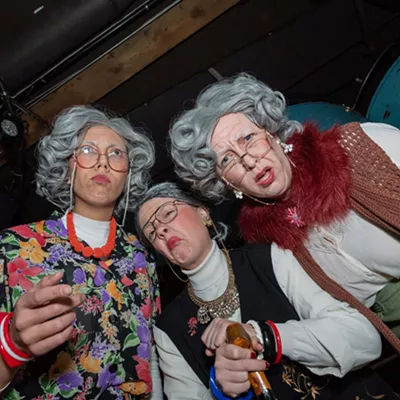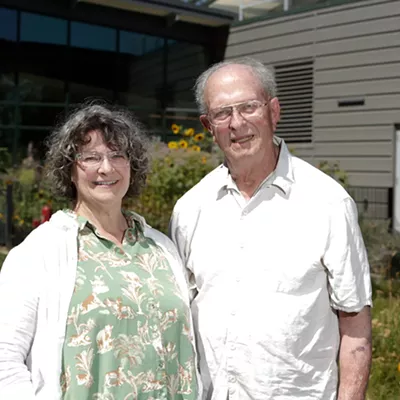I heard it from the sidewalk: "Do you have any water?"
I stopped to provide what little I had and then saw her. A girl, a bit younger than myself with no shoes or undergarments, clad in a man's baggy shirt and jeans that were falling off of her body. Her hands were scratched and swollen as she reached for my water, her eyes red and puffy, tangled hair sticking out in every direction.
Over the next six hours, this young woman would rip open my world and alter my perspective on life on Spokane's streets and our failing safety net forever.
"There is more in there," I said, pointing to the winery up the street. As she hobbled along beside me, I believed she was in an altered state of mind due to drugs, mental illness or both. She recounted being shoved face-down and getting raped, but then abruptly changed the subject.
"I'm 26," she said. How long she'd been living on the banks of the Spokane River she couldn't say. She had no ID, her only possession a bit of string she kept wrapping around her finger.
A friend gave us a ride to my place so I could figure out what to do next. I was able to help her wash, get a change of clothes and eat dinner. During that time I learned that "friends" kicked her out of their camp because she was "crazy." Her mother was a "crystal meth user" and her father was abusive. She recalled her sister fondly, but who and where she was exactly got mixed up with her multiple personalities.
My mother called around to all the local shelters, which were full. We were advised to take her to the hospital, where she could allegedly receive help. She had a large welt on her wrist "from a needle that missed the vein" and scratches on her abdomen that she said she didn't put there. We talked her back into the car, but she was not interested in the hospital. "I don't want to go there," she countered. "I just need a mommy and a daddy and someone to be nice."
The men at the emergency room couldn't take her if she didn't want to be admitted; never mind that she was in no state to make such a decision. "I don't have insurance, I'm leaving!" she announced, darting out into traffic and beginning to walk erratically down the street. "Call the ambulance," they told us, but the ambulance wouldn't come. Another suggestion: "Call the police." The police hung up on us twice. We didn't know what else to do, so we followed her helplessly in our car until she disappeared back into the night.
Pope John Paul II said, "A society will be judged on the basis of how it treats its weakest members." If you are doing what you can in this broken world to help make sure everyone is treated with basic human dignity and respect, I thank you.
Otherwise, it's never too late to start. ♦
Mariah McKay is a fourth-generation daughter of Spokane and a community organizer campaigning for racial, social and economic justice. She currently serves as a public health advocate.





















